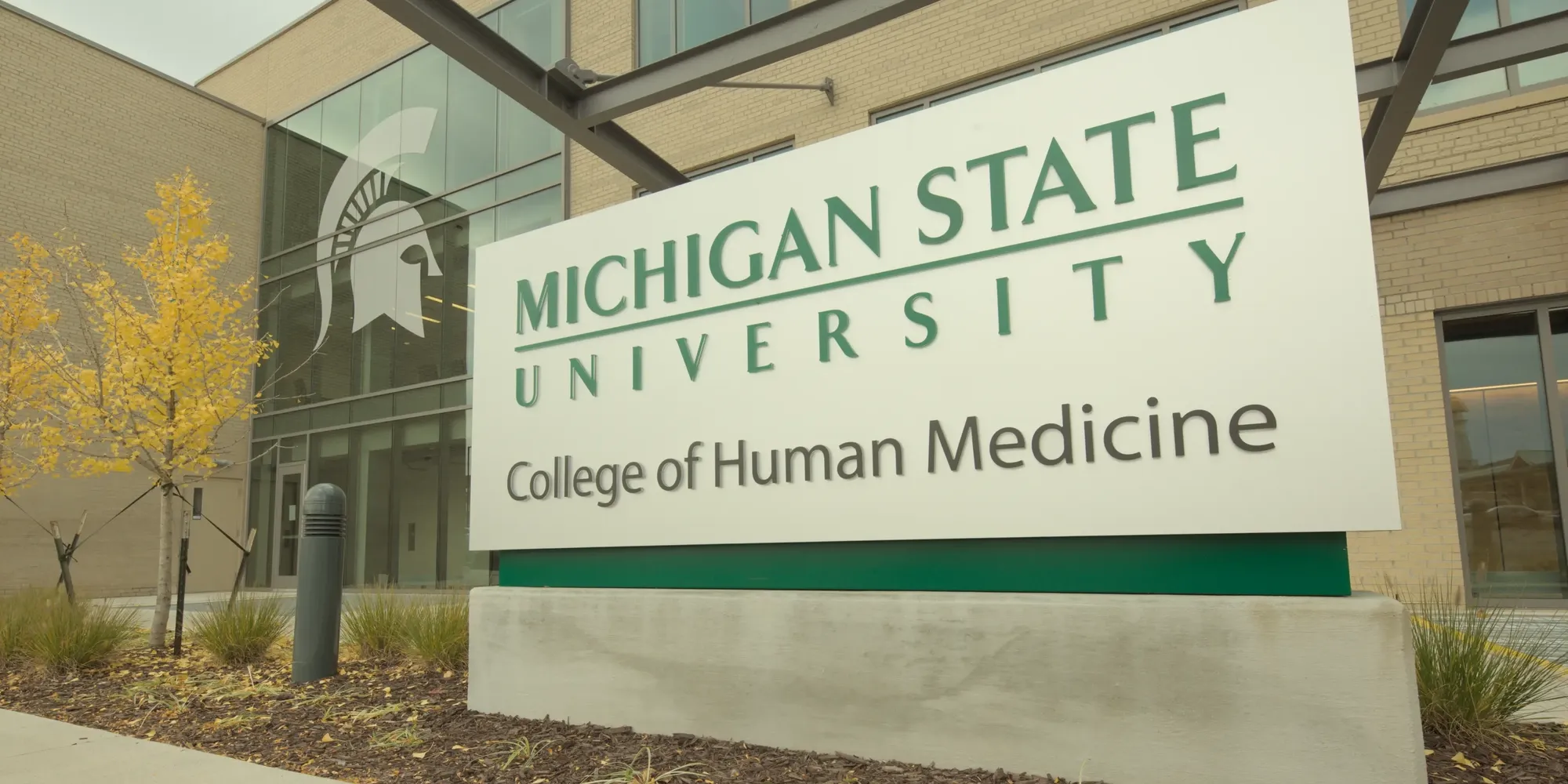The Michigan State University Board of Trustees today approved the construction of a $335 million biomedical research center near the intersection of Amsterdam Street and Third Avenue in Detroit.
The seven-story, 335,000-square-foot facility will be owned by Michigan State University and operated jointly, as an outcome of a 30-year partnership with Henry Ford Health.
The Henry Ford Health + Michigan State University Research Center will be MSU’s largest research facility to date, designed to accommodate more than 80 principal investigator teams and the latest technology.

The center is part of a $3 billion “Future of Health” development with Henry Ford, MSU and the Detroit Pistons that includes a new hospital tower and campus as well as mixed-use/mixed-income residential buildings.
“MSU has a long history of working in Detroit, and our partnership with Henry Ford Health allows us an even greater impact on the health of those in the city and across the state,” said MSU President Kevin M. Guskiewicz, Ph.D. “As Spartans, collaborating to advance the common good is in our DNA, and we look forward to working with our partners to address health equity and other grand challenges of our time.”
For more than a century, Henry Ford Health has embodied clinical research expertise, pursuing the newest therapies for patients. Recently, more than 130 researchers from the hospital system have joined the Michigan State University faculty.
In 2022, Henry Ford Health + Michigan State University achieved recognition as an aligned research organization by the National Institutes of Health.

“This unique affiliation between our integrated academic health system and MSU will reshape and reimagine how health care is delivered in the city, state and beyond,” said Bob Riney, president and CEO of Henry Ford Health. “We are advancing collaboration and discovery in ways that would not be possible as separate entities. We are proud to have this research center as the first on our new campus to break ground, as we anticipate continued transformational development to the entire Detroit campus.”
The new facility will allow partners to expand research in areas including cancer, neuroscience, immunology and public health. There will be an emphasis on addressing health inequities and disparities and the social determinants of health.
“With the approval of the Henry Ford Health + Michigan State University Research Center, we are setting the stage for a future where health care innovation, education and community involvement come together,” said MSU Board of Trustees Chair Dan Kelly. “This investment pushes the boundary of medical knowledge and signifies a commitment to advancing biomedical research and MSU’s commitment to the people of Detroit and the broader Michigan community.”
“MSU values a community-based approach that drives discovery, innovation and, most of all, partnership with our neighbors,” said Norman Beauchamp Jr., executive vice president for MSU Health Sciences. “Our goal is to build a research powerhouse focused on bringing hope and health to all people and that serves as a national model for how universities, health care systems and communities can work together.”

Along with researchers from the partner institutions, the Nick Gilbert Neurofibromatosis Research Institute will occupy an entire floor of the building. This will be the first brick-and-mortar institute solely dedicated to neurofibromatosis, bringing unique opportunities for collaboration across the partnership and with researchers around the world.
Construction on the research center is expected to begin in mid-May. The research center is set to open in 2027.
Get the latest updates on our programs and initiatives.


